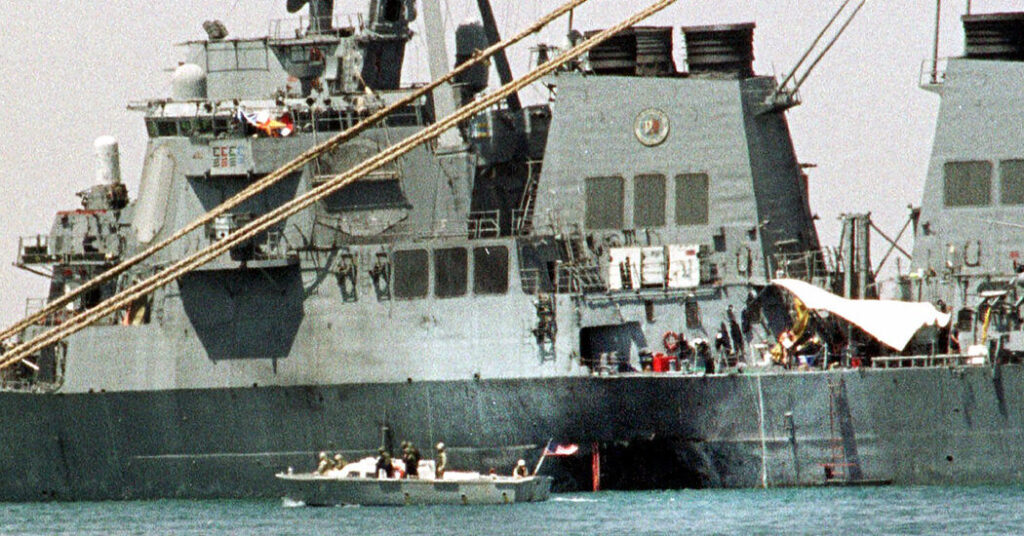A military judge on Monday postponed the trial in Al Qaeda’s 2000 bombing of the U.S. Navy destroyer Cole until next year to give defense lawyers more time to prepare for the death penalty case.
The judge, Col. Matthew S. Fitzgerald, announced the new start date for the trial — June 1, 2026 — at a pretrial hearing at the naval station at Guantánamo Bay, Cuba.
The judge had scheduled the trial to begin on Oct. 6, days before the 25th anniversary of the attack that killed 17 U.S. sailors and wounded dozens of others. The defendant, Abd al-Rahim al-Nashiri, is accused of helping to orchestrate the attack by two suicide bombers who blew up a bomb-laden skiff alongside the Cole during a refueling stop off Aden, Yemen.
Colonel Fitzgerald also canceled pretrial hearings until November, saying he agreed with the defense lawyer, Allison F. Miller, that she needed more time to prepare. He said he would issue a more detailed explanation and deadlines in a written decision.
Ms. Miller is the third capital defender to represent Mr. Nashiri, a Saudi prisoner, since his arraignment in 2011. She was hired in August.
She said at a recent hearing that her focus last year had been to reach a guilty plea agreement that would settle the case with a prison term rather than risk a trial and a potential death sentence. Mr. Nashiri, 60, signed the agreement with military prosecutors in December, Ms. Miller has said. But the lead prosecutor, Rear Adm. Aaron C. Rugh, has yet to present the settlement to Defense Secretary Pete Hegseth to determine whether he will approve it.
The Cole case is the longest-running capital case at Guantánamo Bay. The reasons it has taken so long to reach to an actual trial include challenges to the evidence, a walkout in 2018 by an earlier defense team and a decision by a judge to exclude Mr. Nashiri’s confessions as tainted by torture.
At least eight parents of the fallen sailors, many of whom had regularly attended pretrial proceedings, have died while waiting for a trial.
Colonel Fitzgerald is the fourth military judge to preside in the case, and the fourth to set and then abandon a fixed trial date. Mr. Hegseth recently assigned him to serve as the chief judge of the Guantánamo judiciary, in addition to presiding in Army court-martial cases.


